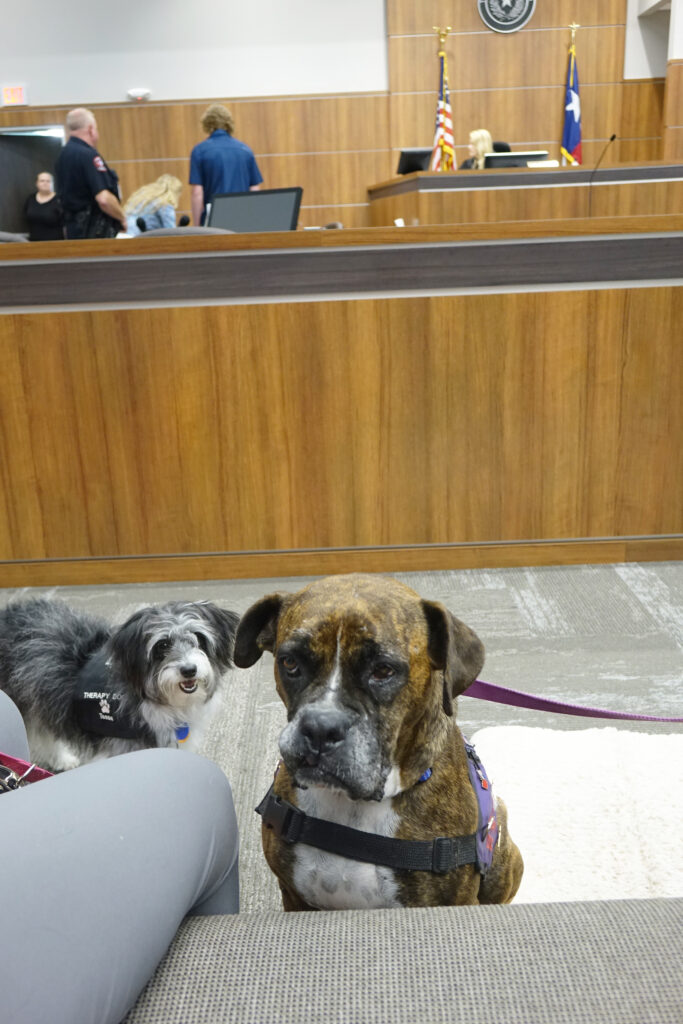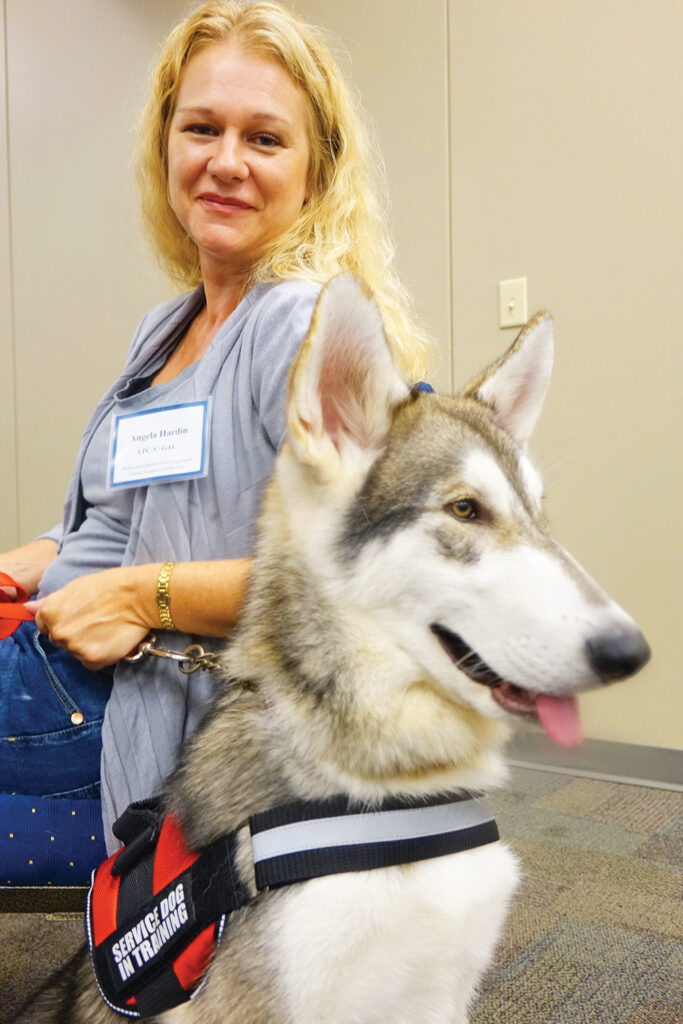Certified therapy dogs have proven their worth providing comfort to nearly anyone with a special need. Dogs have been helping the blind for generations, but now they also provide comfort to individuals with serious or terminal illness, help children learning to read, and military personnel with PTSD, just to name a few. More recently they have also ventured into the courtroom to help crime and trauma victims or anxious defendants cope with the prospect of giving testimony.

Twenty-six states now have programs in which therapy dogs are working in the judicial system. Like their counterparts in hospitals and nursing homes, courtroom therapy-dog handlers undergo training, and their handler-companions are certified in pet-assisted therapy programs offered through national service-dog organizations.
Sometimes dubbed “courthouse facility dogs,” these canines may lie quietly in the witness box, or, as in the case of our JP3 court, they sit with their handlers in the gallery to offer a supportive presence and help defendants compose themselves before talking to the Judge.
Williamson County’s JP3 Court has been enlisting therapy dogs since 2015 when then-Judge Bill Gravell introduced Lady (right, center) to his courtroom to help his defendants and families. Pictured at right in the new JP3 courtroom are Lexi and Tessa, members of Bow Wow Therapy Dogs and also part of Jerry and Marlene Coffman’s family.
During a recent day in court, a defendant’s mother shared that she didn’t expect to see dogs in the courtroom, but she had heard about the programs and was pleased to see them. Her son, who was appearing before Judge Evelyn McLean, said Lexi (top) made him feel much better because sometimes it causes anxiety just to be in the room. “It helps to see animals here and realize all those authority figures—judges and bailiffs—are people too, who like animals just like me. It makes a difference.”
Marlene says therapy dogs behave much like other working dogs. They are affectionate and loving at home; the playful pets owners fell in love with right away. “When they put on the vest, dogs know it’s time to go to work and they assume the role with exaggerated calm. They are trained in a variety of scenarios; people in wheelchairs, sudden loud noises, large groups, or people yelling, to familiarize them with what they may experience and can adapt without reacting.”
Jerry and Marlene have been working in courtrooms, pediatric hospitals, nursing homes and schools for 2-1/2 years. Therapy dogs must be at least one year old and be in the home at least six months to establish a bond with their owners. They complete basic obedience training, then begin therapy classes. There are several levels of training, depending on the need for calm; a courthouse is less strict than being able to lay on a hospital bed for a patient to talk to or touch.
Typically, while they do not require much control, court dogs remain in their handlers’ hands to avoid feeling any anxiety of their own in a strange environment. Jerry adds, however, “Sometimes you learn what the dog can handle and even enjoy; Lexi really loves kids so when we’re not in a school, she is eager to please younger family members we come across in a courtroom.”
Canine therapy requires no special skills, other than training for certification, and owners can work as often and wherever they prefer. “There is no recipe as long as the animals have the right temperament,” Jerry adds. “Our group has Great Danes and Chihuahuas, even rabbits and guinea pigs. You just need a desire to help and love of animals.”
There are several therapy dog trainers in Georgetown and many more that serve the city around Williamson County. Most not only provide training, but will also assist humans in choosing the right dog with the right temperament to make a great partner.

Angela Hardin and Wolf, who is just one of the increasingly useful tools in the box for better emotional health in our Juvenile Services Center.
Juvenile Therapy Dog programs take advantage of the natural bond that forms when humans and animals spend time together and feel responsible for each other. Companionship, play, and even simple petting can relieve anxiety and provide comfort to youths who perhaps are acting out
because of fear or victimization.
The State also pairs shelter dogs with youths in a 12-week program of training. Kids live with, groom, feed, and train their dogs. The training connects kids with positive social forces and assets, drawing on community resources to engage them in pro-social activities and opportunities.
